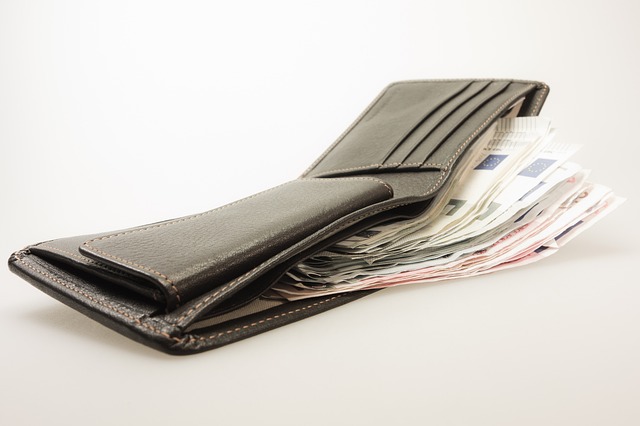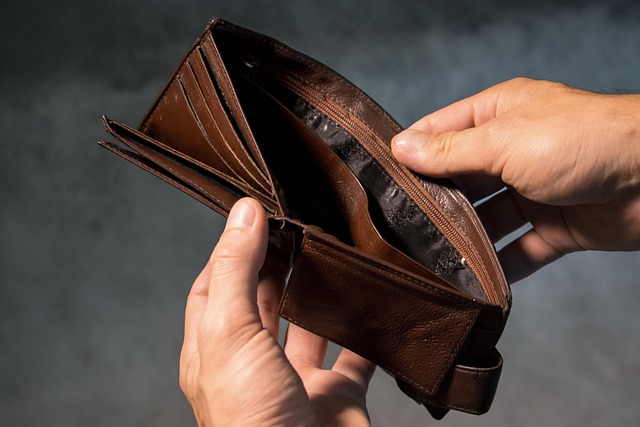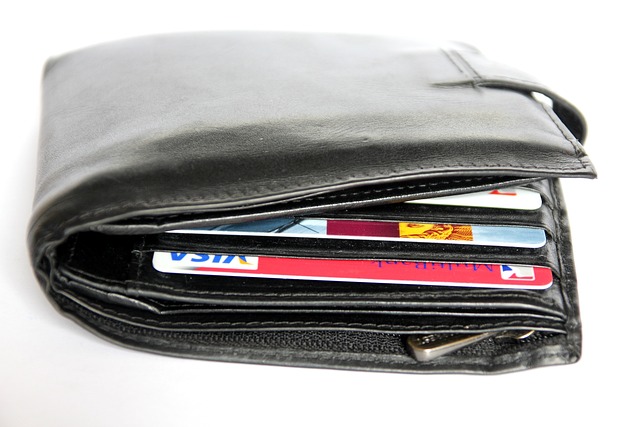Understanding Crypto Wallets: A Comprehensive Guide
A crypto wallet is an essential tool for anyone looking to invest in or use cryptocurrencies. Choosing the right wallet is crucial to ensuring the security of your digital assets. Throughout my journey navigating the world of crypto, I encountered numerous challenges and setbacks. However, through persistent research and trial and error, I discovered the best practices for effectively utilizing crypto wallets. This article will explore my experiences, the types of wallets available, and how to securely store your cryptocurrency.
When I first started investing in cryptocurrencies, I underestimated the importance of wallets. I made the mistake of keeping my assets on exchanges, which I later learned is not the safest option. Many people, including myself, often overlook the need for a reliable crypto wallet, which can lead to significant losses. This article aims to educate you on the various types of wallets available, their pros and cons, and best practices for safeguarding your investments.

What is a Crypto Wallet?
A crypto wallet is a digital tool that allows you to store, send, and receive cryptocurrencies. It does not actually store the cryptocurrencies themselves; instead, it holds the keys to your assets, which are recorded on the blockchain. These keys are crucial for accessing your funds. In my early days, I often confused wallets with exchanges, mistakenly thinking they served the same purpose. However, I quickly realized that wallets provide a level of security and control that exchanges do not offer.
Types of Crypto Wallets
1. Hot Wallets
Hot wallets are online wallets that are connected to the internet. They are convenient for frequent transactions and trading but are also more vulnerable to hacking. I once used a hot wallet for day trading, believing it would streamline my process. Unfortunately, I fell victim to a phishing scam, which resulted in a significant loss of funds. Hot wallets are best suited for smaller amounts of cryptocurrency that you need immediate access to, but I learned to limit my exposure and keep larger amounts in more secure wallets.
2. Cold Wallets
Cold wallets, or hardware wallets, are offline storage solutions that offer enhanced security. After my experience with hot wallets, I invested in a hardware wallet. These devices store your private keys offline, making it nearly impossible for hackers to access your funds. I have found that using a cold wallet provides peace of mind, especially when holding substantial amounts of cryptocurrency. Leading examples of cold wallets include Ledger Nano S and Trezor, both of which are highly regarded for their security features and user-friendly interfaces. Additionally, cold wallets often come with recovery options, allowing you to restore access in case of loss or damage.
3. Paper Wallets
Paper wallets are another form of cold storage. They involve printing your public and private keys on paper. While this method can be very secure, it also comes with risks. I once created a paper wallet, but I misplaced it and lost access to my funds for an extended period. If you choose to go this route, ensure you have a secure method of storing the paper wallet itself, perhaps in a safe or a safety deposit box. Remember, physical damage or loss of the paper can result in permanent loss of access to your funds. It's also important to consider that paper wallets can be susceptible to physical deterioration over time.
Choosing the Right Wallet
Selecting the right wallet depends on your individual needs and how you plan to use your cryptocurrencies. Here are some factors to consider:
- Security: Always prioritize security features when choosing a wallet. Look for wallets that offer multi-signature support, recovery seed phrases, and strong encryption methods. Additionally, consider wallets that provide regular security audits and updates.
- Convenience: Consider how frequently you plan to access your funds. If you're a frequent trader, a hot wallet may be more suitable, but for long-term holding, a cold wallet is advisable. Evaluate the user interface and ease of use, as these can significantly affect your experience.
- Control: Ensure you have control over your private keys. Non-custodial wallets allow you to maintain full ownership and control of your keys, which is essential for safeguarding your assets. Research the wallet's policy on key storage and access.
- Supported Cryptocurrencies: Different wallets support different types of cryptocurrencies. Ensure the wallet you choose can accommodate the assets you wish to hold, especially if you plan on diversifying your portfolio. Check for compatibility with emerging tokens and decentralized finance (DeFi) assets.

Best Practices for Securing Your Crypto Wallet
After years of experience, I've compiled a list of best practices for securing your crypto wallet:
- Use Two-Factor Authentication: Enable 2FA on your wallet and accounts to add an extra layer of security. This makes it significantly harder for unauthorized users to access your funds. Consider using a dedicated authenticator app instead of SMS for better security.
- Backup Your Wallet: Regularly backup your wallet and store it in a secure location. Consider using both digital and physical backups to minimize risk. Be sure to encrypt your backups to protect them from unauthorized access. Additionally, test your backups periodically to ensure they are functional.
- Keep Your Software Updated: Ensure that your wallet software is up to date to protect against vulnerabilities and exploits. Regular updates often include security patches that are critical for safeguarding your assets. Enable automatic updates if available.
- Be Wary of Phishing Scams: Always double-check URLs and avoid clicking on suspicious links. Only download wallets from official websites. Familiarize yourself with common phishing tactics to better protect yourself. Consider using browser extensions that detect phishing sites.
Crypto Exchanges and Wallets
When it comes to trading cryptocurrencies, you often need to use an exchange. However, it's essential to keep in mind that exchanges are not wallets. I initially made the mistake of thinking that my crypto was safe on an exchange. I learned the hard way when I had to withdraw my funds from an exchange that was hacked. This experience taught me the importance of moving my crypto to a secure wallet as soon as possible. Some popular exchanges that also offer wallets include:
- Binance: A leading exchange with a user-friendly wallet interface and a wide range of cryptocurrencies. It provides features like margin trading and staking, making it suitable for various trading strategies.
- MEXC: Known for its low trading fees and a variety of crypto options, making it a preferred choice for many traders. It also offers futures trading for advanced users, which can enhance trading opportunities.
- Bitget: A platform that offers various trading features and a built-in wallet to store your assets securely. It emphasizes security with features like asset insurance and compliance with regulatory standards.
- Bybit: A growing exchange with a strong focus on user security and wallet services, suitable for both beginners and experienced traders. It offers a testnet for users to practice trading without real risks, which is a valuable feature for newcomers.
Final Thoughts
My journey in the world of cryptocurrency has been filled with ups and downs. From losing funds to discovering the importance of security, each experience has taught me valuable lessons. The right wallet can make all the difference in protecting your investments. I hope this guide provides you with the knowledge to choose the best wallet for your needs. Remember, the key to success in crypto is not just about making money; it's about safeguarding your assets for the long haul.
As you delve deeper into the world of cryptocurrencies, always remember to conduct thorough research, stay updated on security practices, and choose wallets that offer the best protection for your digital assets. Happy investing!

Additional Resources
To further enhance your understanding of crypto wallets and security, consider exploring the following resources:
- Investopedia: Cryptocurrency Wallet - A detailed overview of different wallet types and their functionalities.
- CoinDesk: How to Secure Your Crypto Wallet - Tips on securing your wallet and avoiding common pitfalls.
- Blockchain.com: Understanding Crypto Wallets - A guide that explains how wallets work and the technology behind them.
- Kaspersky: Cryptocurrency Wallet Definition - A security perspective on the risks associated with different types of wallets.
- CryptoCompare: Wallets - A comprehensive resource that compares different wallet options based on features, security, and user ratings.
Conclusion
As the cryptocurrency market continues to evolve, the importance of securing your digital assets cannot be overstated. With new threats emerging regularly, it’s vital to stay informed and adopt best practices to safeguard your investments. Whether you are a novice or an experienced trader, understanding the nuances of crypto wallets is fundamental to your success in the cryptocurrency space.
The right wallet not only enhances security but also improves your overall experience in managing and transacting with cryptocurrencies. Always remember to remain vigilant, continually educate yourself, and engage with the crypto community to share insights and experiences. By following this guide and leveraging the additional resources, you’ll be better equipped to navigate the complex world of cryptocurrencies safely and effectively.
Understanding Blockchain Technology
To fully grasp how crypto wallets operate, it is essential to understand blockchain technology. A blockchain is a decentralized ledger of all transactions across a network. Each block contains a number of transactions, and every time a new transaction occurs on the blockchain, a record of that transaction is added to every participant's ledger. This technology underpins the security and transparency of cryptocurrency transactions.
Blockchain technology ensures that once a transaction is recorded, it is nearly impossible to alter. This immutability is what makes cryptocurrencies secure. With the rise of decentralized applications (dApps) and smart contracts, understanding the underlying blockchain technology becomes crucial for anyone involved in cryptocurrency.

Future of Crypto Wallets
The future of crypto wallets is poised for evolution as the cryptocurrency landscape changes. With advancements in security protocols, user interfaces, and integration with decentralized finance (DeFi) platforms, wallets will continue to become more sophisticated. Features such as biometric authentication, multi-currency support, and integration with other blockchain services are becoming increasingly common.
Moreover, the rise of mobile wallets is making it easier for users to manage their assets on the go. As cryptocurrencies gain mainstream adoption, wallets will play a pivotal role in how individuals interact with digital currencies and decentralized networks.
In conclusion, staying informed about the developments in crypto wallets and blockchain technology will empower you to make better decisions about your investments. The right wallet, combined with an understanding of underlying technologies, can enhance your trading experience and ensure the security of your digital assets.
The Role of Decentralized Wallets
As the cryptocurrency ecosystem grows, decentralized wallets, also known as non-custodial wallets, are becoming increasingly popular. These wallets allow users to retain full control over their private keys without relying on a third-party service. This self-custody approach aligns with the core principles of cryptocurrencies, promoting decentralization and individual empowerment.
Decentralized wallets typically integrate seamlessly with decentralized applications (dApps) and allow users to engage in activities such as trading, lending, and staking without leaving the wallet interface. This added functionality not only enhances user experience but also increases the utility of cryptocurrencies beyond simple transactions.
However, it's crucial for users to understand the responsibilities that come with managing their own keys. Losing access to a decentralized wallet means losing access to the funds within it permanently. Therefore, users should educate themselves about safe practices for managing private keys and recovery phrases.
Conclusion and Call to Action
Navigating the world of cryptocurrencies can be daunting, but understanding crypto wallets and their functionalities is a vital step toward financial security in this digital age. Whether you choose a hot wallet for convenience or a cold wallet for security, ensure that you take proactive measures to protect your investments.
I encourage you to explore the resources provided in this guide, participate in community forums, and stay up-to-date with the latest trends in cryptocurrency and blockchain technology. By doing so, you will not only enhance your knowledge but also position yourself for success in the ever-evolving landscape of digital currencies.